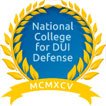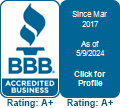Next Steps After Drug Charges
When you are arrested on drug charges, you may not know what you should do to protect your rights, especially if you are being arrested for the first time. A Las Vegas criminal defense attorney can help guide you through the criminal justice process. Reach out to criminal defense attorney Joel M. Mann today for a free initial case review to discuss your legal options and the steps we can take to begin building an effective defense against your charges.
Since 2006, our firm has provided excellent client service and legal representation to individuals facing charges in Las Vegas and throughout Nevada. When you turn to us for help after a drug arrest, you’ll receive the personal attention you deserve, which includes getting to work directly with Joel. You’ll never be passed off to a case manager or paralegal, and Joel will always make himself available to address your needs and concerns.
If you need a criminal defense lawyer, contact us today. During your confidential consultation, Joel can explain what to expect from a simple possession charge and what happens if you get caught with drugs.
I Was Arrested on a Drug Charge – What Do I Do Now?
Joel M. Mann is frequently seen representing his clients throughout all of Nevada’s state and federal trial and appeals court. He is also among the few attorneys in the nation sworn in before the U.S. Supreme Court. As such, he is often confronted with the question from potential clients: I was arrested for drugs. Now what? Below, learn about the process you will likely confront and what to do after getting arrested for drugs.
Do Not Talk to the Police – Know Your Rights
The first thing you should do after being arrested on drug charges is to exercise your constitutional rights, especially your right to remain silent. You are not required to answer any questions that the police may have regarding your charges or any other potential criminal investigations. As soon as you are arrested or interrogated by police, you should calmly but firmly inform the officers that you wish to exercise your right to remain silent. Exercising your right to remain silent also involves staying silent. If you later voluntarily begin speaking to the police, you may end up waiving your right to silence.
Stay Calm
You should also stay calm throughout the entire arrest and booking process. Even if you think you are being wrongfully arrested for a crime you didn’t commit or believe that law enforcement is violating your rights during your arrest, you should avoid the temptation to become agitated or to try to resist the arrest. Trying to interfere with the police’s activities may constitute a crime itself, even if you did not commit the drug charges you are being arrested for.
Get a Lawyer
In addition to exercising your right to silence, you should also inform the police officers that you wish to speak to an attorney. Be firm and direct in your request for legal counsel. Statements such as “Maybe I should talk to an attorney” or “Should I talk to a lawyer?” may not be deemed a clear invocation of your right to counsel. Instead, state clearly, “I want to speak to a lawyer.”
Your right to an attorney includes the right to speak with a lawyer prior to being questioned by police and to have your attorney present during any police questioning. If you ask for an attorney, the police must cease questioning until you have had a chance to consult with a lawyer. However, if you voluntarily reengage with the police, they may be entitled to resume questioning even if you have not yet spoken to an attorney.
The Arraignment
Arraignment refers to the first court hearing after an arrest. At the arraignment, the trial court will formally advise you of the charges against you and confirm whether you already have an attorney or need one appointed to you. You will also be required to enter a plea to your charges. If you plead not guilty, you can later change your plea. The trial court will also explain other rights you have in the criminal justice system.
Finally, the trial court will determine whether to release you from custody pending your trial or to continue your detention until your trial. If the trial court orders your release, it can impose conditions such as bail, electronic monitoring, or the requirement to maintain employment or avoid future arrest.
Possible Defenses
Even if you have been arrested and charged with drug offenses, you may have various defenses available to you to contest your charges. Common defenses raised in drug cases include:
- You did not have actual or constructive possession of the drugs. For example, if drugs were found in your home in someone else’s bedroom that you did not have access to, or if you had someone in your vehicle that you didn’t know had drugs on them, you may be entitled to raise this defense.
- You did not knowingly have possession of the drug, which may occur if someone planted drugs on your person or in a bag or package you were carrying without your knowledge.
- The substances at issue are not illegal drugs.
- You lawfully possessed the drugs at issue, such as having a valid prescription for certain controlled substances.
- You were subject to an unlawful stop, search, or seizure by police, including where police lacked reasonable suspicion of criminal activity for a stop or lacked probable cause and exigent circumstances to conduct a warrantless search of your person, vehicle, or home.
Drug Court
You may have the option of avoiding jail or prison time in Nevada for drug charges if you successfully apply to the state’s drug court program. Drug court is offered to individuals facing a first-time possession for low-level drug offenses. The program offers drug education courses for non-addicts and rehabilitation programs for addicts.
Program participants must also meet the requirements of the program, such as submitting to random drug testing. Successful completion of drug court can result in the dismissal of the drug charges and the sealing of the participant’s record. This generally allows them to legally deny, in most circumstances, that they were ever charged with a drug offense. An experienced criminal defense lawyer can evaluate your situation and determine if drug court in Las Vegas is a viable option for you.
Jail Time
If you are convicted on drug charges, you will likely face the prospect of jail or prison time as part of your sentence. The sentence length will depend on the severity of the charge, the type of drug involved, your previous criminal history, and the quantity involved. Your criminal defense lawyer will attempt to mitigate any jail time you are subject to.
Alternative Sentencing
Courts may order alternative sentencing, such as:
- Probation
- Fines
- House arrest and electronic monitoring
- Community service
- Drug education classes or drug addiction rehabilitation
Contact Joel M. Mann Today
When you are arrested for drug crimes, the criminal justice system can move quickly. You need experienced legal counsel to help protect your interests and reputation. An attorney can immediately advise you on what to do after getting arrested for drugs and what you can expect from the legal process, whether you’re facing a simple possession charge or a more serious charge.
Contact Las Vegas criminal defense lawyer Joel M. Mann today for a free, confidential consultation to learn more about how an attorney can fight for a favorable outcome in your case.

















